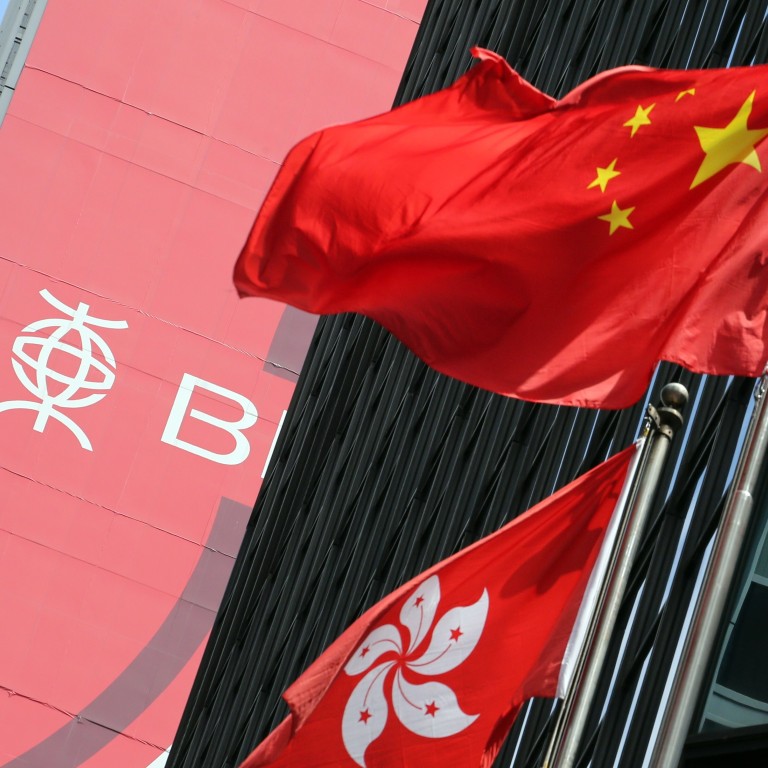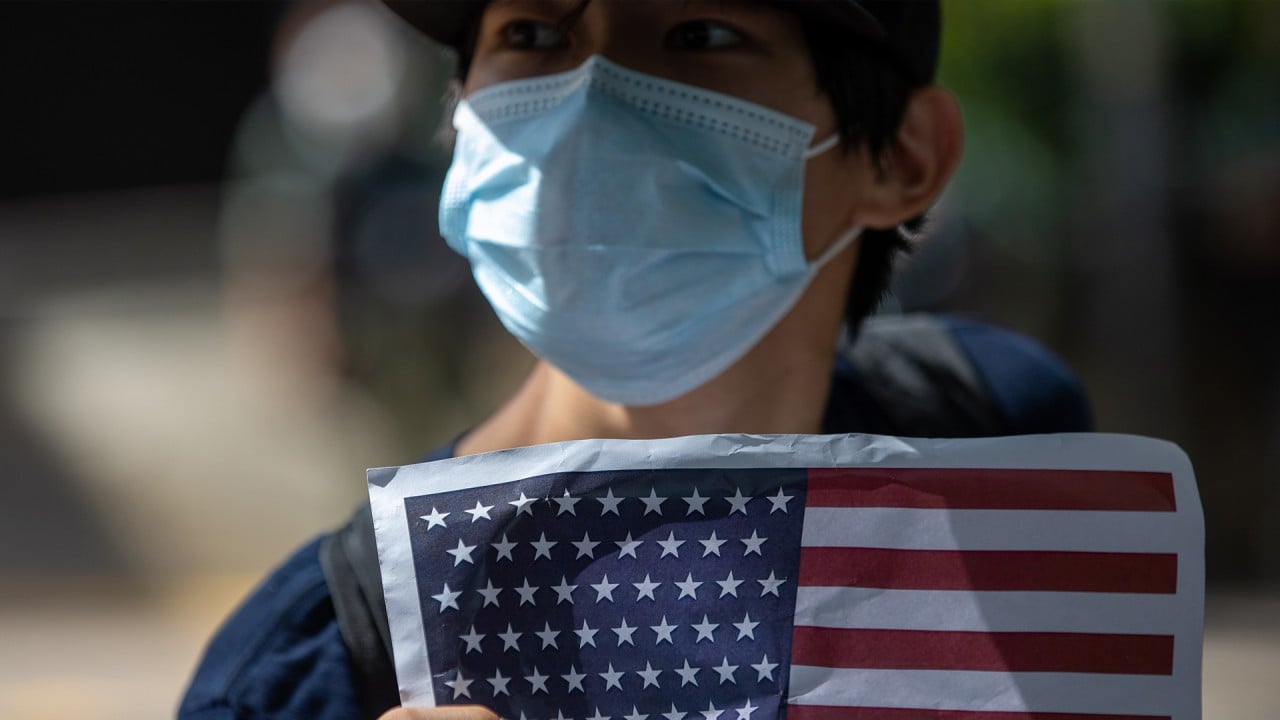
Bank of East Asia interim profit jumps on efforts to contain bad loans from ill-fated strategy in mainland China business
- Net charge for impairment losses almost halved to HK$2.9 billion from a year earlier as lender reined in non-performing loans
- Family-run Hong Kong lender announced plans to reorganise its mainland business in February after completing worst year in a decade in 2019
Hong Kong’s largest independent and family-run lender said while the outlook for the mainland economy is “considerably worse” than it was at the start of the year, there is optimism that activity will improve in the second half.
The banking group, whose business is focused primarily on Hong Kong and mainland China, reported a 53 per cent increase in profit to HK$1.53 billion (US$197.4 million) in the six months through June 30 from a year earlier. Net charge for impairment losses almost halved from a year earlier and losses in its mainland operations narrowed.

01:15
US suspends extradition treaty with Hong Kong over city’s national security law
“Beyond the immediate impact of Covid, political and compliance risks are on the rise given the escalating Sino-US geopolitical tensions,” Adrian Li Man-kiu, co-chief executive, said on a conference call with journalists. “We shall watch the changing circumstances closely and adapt to new regulations and sanctions.”
Relations between Washington and Beijing have become increasingly strained this year over a variety of issues, including technology, trade and Hong Kong’s autonomy.
“The sanctions do not have a significant impact on our business operations,” Li added. “The bank has established procedures to comply with all laws and regulations, as well as treating our customers fairly.”
BEA’S shares declined 0.4 per cent to close at HK$18.10 in Hong Kong on Thursday.
Chinese banks to report credit-card loans turned sour in first quarter as household debt mounts
The lender said that its net charge for impairment losses fell sharply to HK$2.9 billion in the first half largely due to reductions in losses in its mainland business. That compared with a charge for impairment losses of HK$5.1 billion in the prior year period.
The bank’s mainland business reported a pre-tax loss of HK$602 million in the first six months of 2020, compared with a loss of HK$3.8 billion a year earlier. In Hong Kong, pre-tax profit fell to HK$1.41 billion from HK$3.69 billion a year earlier, driven by higher loan provisions, compression of its net interest margin and mark-to-market revaluation losses on its debt and equity portfolios.
His brother Brian Li Man-bun, also co-chief executive, said BEA took an “extremely prudent” approach to its loan book in the mainland, reducing its corporate loan balances by 6.8 per cent year-to-date and cutting its reliance on stressed segments, such as the property sector.
BEA said its overall impaired loan ratio worsened to 1.29 per cent at the end of June from 1.22 per cent at the end of December 2019, with both mainland and Hong Kong units reporting higher ratios. In Malaysia, the bank suffered an impairment loss of HK$220 million from its share of an associate unit.
The bank said the impaired loan ratio for its mainland business remained at an elevated level of 3.92 per cent in June, but that was mainly a result of delayed recovery from the economic fallout of the coronavirus, rather than new non-performing loans.
Net interest income declined 17.7 per cent to HK$6.11 billion in the first half. Net fee and commission income increased 6.7 per cent to HK$1.44 billion in the first six months of the year. Its cost-to-income ratio worsened to 51.3 per cent in the first half, compared with 48.2 per cent a year earlier.

